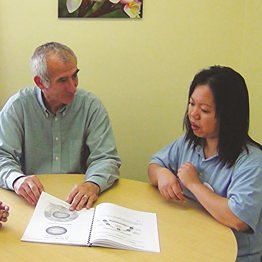Dementia Care NZ
Our passion and expertise is caring for people with dementia
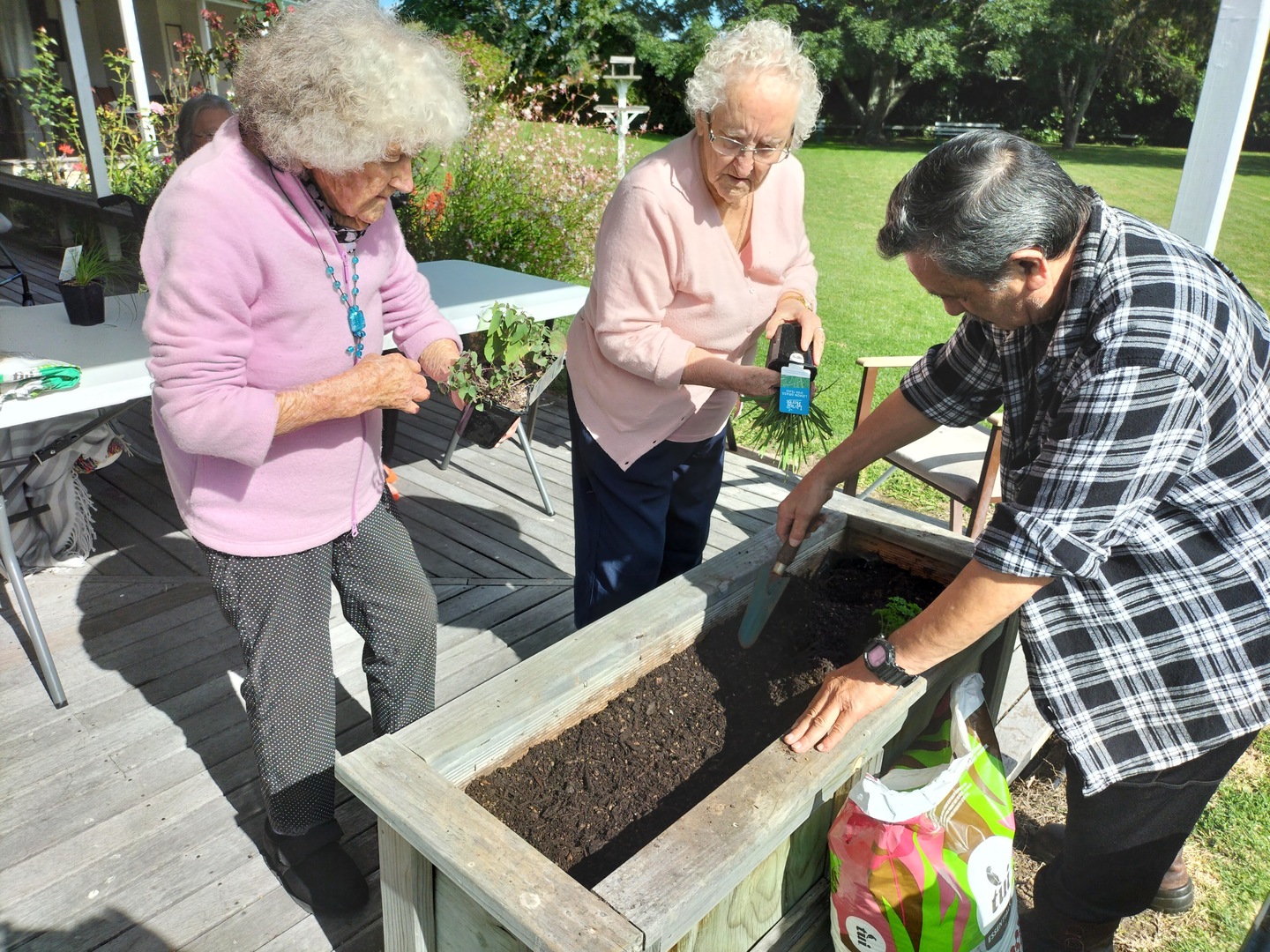 For over a decade Dementia Care NZ has provided care for the elderly, specialising in caring for people with dementia, and has pioneered the ‘Small Homes’ and ‘Best Friends Approach to Care’ concepts in New Zealand.
For over a decade Dementia Care NZ has provided care for the elderly, specialising in caring for people with dementia, and has pioneered the ‘Small Homes’ and ‘Best Friends Approach to Care’ concepts in New Zealand.
Ngā matawhānui – Our vision
Kia tomo mai ngā tangata katoa i runga i te atawhai me te aroha. Kia whakaratongia te maungārongo, te āhurutanga me te koa. Kia taunakitia te auahatanga me te kaha. Hei whakangakohia te tangata, te hāpori me te ao hoki.
To accept all people with kindness and love. To provide peace comfort and joy. To be proactive, innovative and courageous. To enrich each person, the community and the world.
Ngā uara – Our values
Mā te whakarīrā o te matawhānui nei ka tutuki. Ma te tautika, ma te ngākau pono, ma te ngākau tapatahi, ma te ngakau whiwhita hoki ka tāea.
We strive to achieve this vision by working with openness, honesty, integrity and passion.
Ngā mahinga – The work we do
Kia whakapūmautia e mātau i te whai tikanga o te whanaungatanga, kia pono, kia tapeke hoki i ngā tangata katoa.
Kia whakahauhau mātou i te whai wāhitanga a te tāngata.
Kia tiaki ā-hoa i o rātau kāinga iti.
Kia whakamana ai mātou i a rātou, ā, ka hikoi ai mātou hoki hei hoa haere ki te wā ka whakawhiti atu ki tūa o te arai.
Kia whai tikanga te āheitanga o te whānau me te hāpori hoki.
kia tomo mai ki te tautoko nei i tō whānau.
Kia whakatuarā mātou i te kotahitanga me ngā uara hoki o te mana o ia tangata.
Kia whakanui hoki mātau i te kotahitanga ahakoa ngā rerekētanga.
We establish trusting relationships based on respect and acceptance.
We encourage people’s participation in companionship-based care in their small home.
We are privileged to accompany people as they journey towards the end of their life.
We welcome family/whānau and the wider community as integral to people’s lives.
We promote inclusion and the rights and values of each person.
We celebrate unity in diversity.
We do things differently, and it works
-
Small homes philosophy
Small homes mean that the environment feels more normalised, and residents orientate to their environment more easily.
There is a family feel. We get to know our residents very well. Purpose-designed kitchens mean that residents and their families have full, assisted and safe access to familiar homely activities. People can help rinse the dishes, make a cup of tea, wipe down the bench, and be part of the running of their home. Baking and cooking activities occur regularly. Bedrooms are warm and cosy. People are encouraged to bring special things from home to make their room feel familiar and homely. We provide all of the necessities.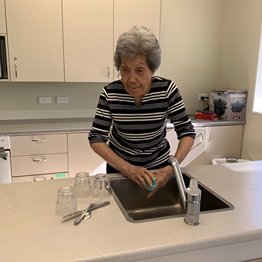
-
'Best Friends' approach to care
Our team cares for and connects with each person as we would a very best friend. This means that people feel loved and important.
One of the most important things we can do when we are with someone who has dementia is to develop empathy, which is trying to understand what the other person is experiencing: learning to ‘walk in their shoes’. Throughout our lives we have experienced this with our best friends. We support each other, have fun together, offer care and compassion, forgive each others’ mistakes and want the best for each other.
We provide a training course for our staff called ‘The Best Friends Approach to Dementia Care’. This explores their experiences of having a best friend and how they can bring these familiar, positive and loving ways of engaging with another person into the workplace, treating each person they are caring for as if they were a best friend. It’s a simple yet effective technique. If we can treat everyone as if they are a best friend, then everyone will experience positive interactions, filled with love and compassion.
We:
accept you as you are
really listen to you
love to hear you laugh
forgive your mistakes
have fun together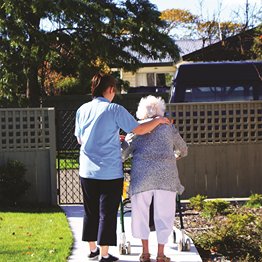
-
Family support
Family become part of our community. We encourage family members to be actively involved in their loved one’s care, and to share their in-depth and intimate knowledge of their loved one with us.
There is honesty and openness. This builds trusting relationships between us all. Family are always welcome and there is an open invitation to stay for a meal.
We respect and support the wish of some family members to remain actively involved in certain practical aspects of their loved one’s care.
We offer family the opportunity to be part of a monthly independently facilitated support group. This is an opportunity to be with people who know what it is like to have a family member with dementia. The journey, which involves many struggles and joys, can be shared with others.
We rely on family to tell us what is going well and what we can do better. How can we make things better for you and your family? Please come and talk with us if you have any suggestions or concerns at all. We rely on your feedback to help us improve.
Family Support is provided, either in person or by telephone, at each facility on a regular basis, sharing their experiences of the dementia journey and strategies developed for coping with the day to day challenges having a loved one with dementia presents.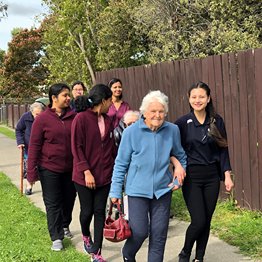
-
Diversity and inclusion
We welcome people of all cultures, sexualities and religions. We pride ourselves on creating an environment where everyone can be true to themselves.
We know it can be especially daunting having a loved one going into care and not knowing whether their individual needs will be respected. Many people have experienced discrimination over the course of their life.
We promote inclusion and the rights and values of each person. We encourage you to share as much information as possible with our care team so they can tailor their care to best suit the needs of you loved one.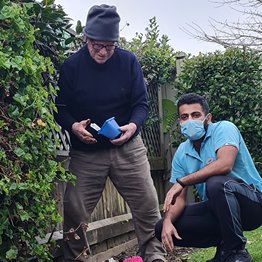
-
Our staff teams
Passionate, professional and committed – three words that describe our wonderful teams. They have the knack of working with elderly people and people with dementia. They know how to love and care for someone as if that person is their very best friend.
We believe that the people who make up our teams need to be nurtured too. We offer a free doctor’s service to staff. Workplace Support is available free of charge to assist staff with any issues they may be finding difficult. This means the people who make up our teams are assisted to be completely available to the people they care for.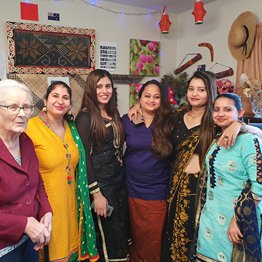
-
Staff education
We believe that every member of staff needs and deserves to be nurtured and developed, and encourage them to reach their potential and be the very best they can in their chosen field.
As a growing organisation, we are continually looking for current staff members or people in the community with potential to be a leader. Staff education and development is our passion. We love to provide opportunities for advancement within our organisation to staff who later become inspirational to other team members. We have an Education Coordinator who coordinates, supports, motivates and encourages staff to grow and develop as much as possible.
Our training programme includes:
• First Aid training
• Best Friends Approach to Care, which is the foundation of our philosophy of care.
• All caregiving staff working in dementia care study four Unit Standards about dementia care.
• We hold regular in-service staff education sessions, which cover topics such as Abuse and Neglect, Advocacy, Civil Defence, Communication Skills, Cultural Awareness, Documentation and Care Planning, Food Safety, Health and Safety, Infection Control, Restraint Minimisation, Safe Transferring, Stress and Grief, Falls Minimisation, Pressure Area Care, Cultural Safety, Fire Safety and Chemical Safety.
• A De-escalation Training Programme presents staff with skills and strategies to manage sensitive situations.
• A training programme encouraging staff to embrace diversity.
• Annual training days are held for Operations Managers, Diversional Therapists, Clinical Managers and Registered Nurses.
• A Health and Safety Award and Staff Member of the Week Award are made on a regular basis at each home throughout the year.
• A Representational Child Therapy programme is available for residents who would benefit from this therapeutic approach. Our staff are trained to support this programme.